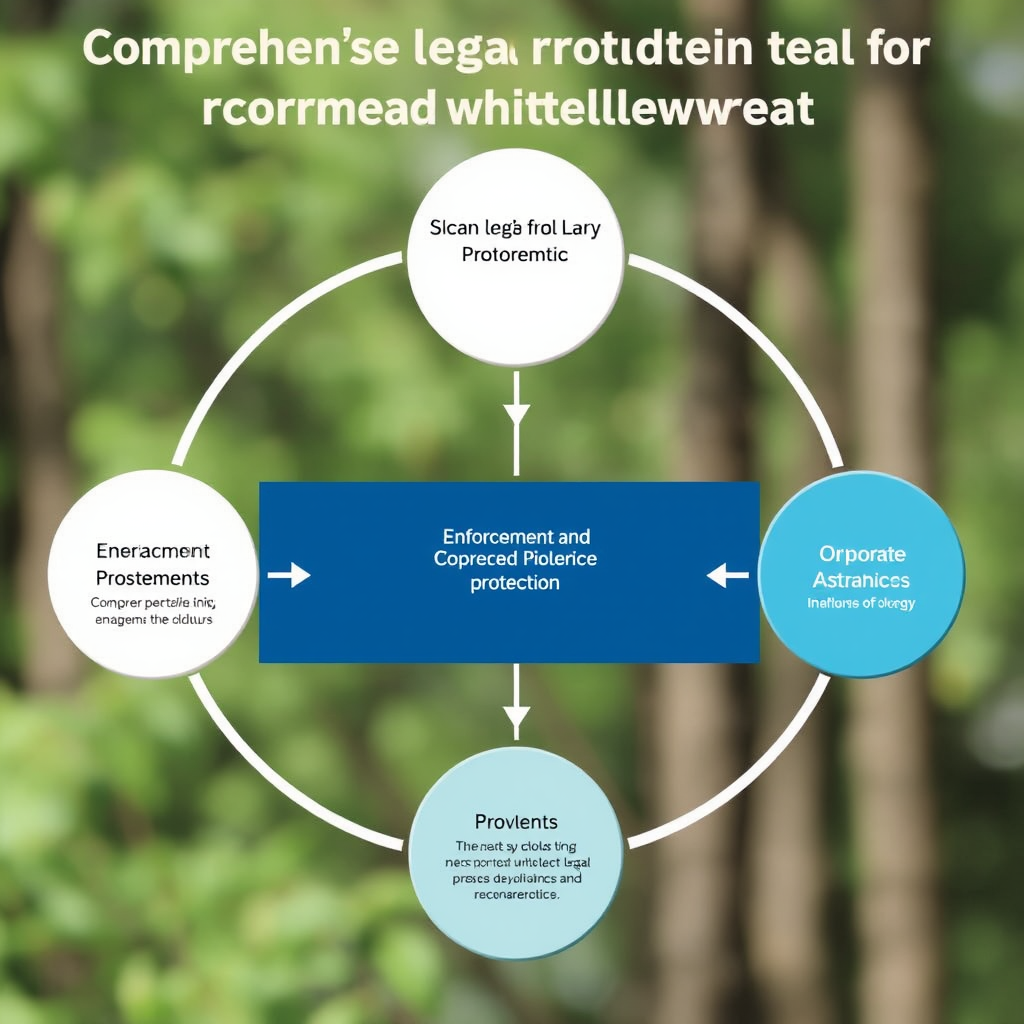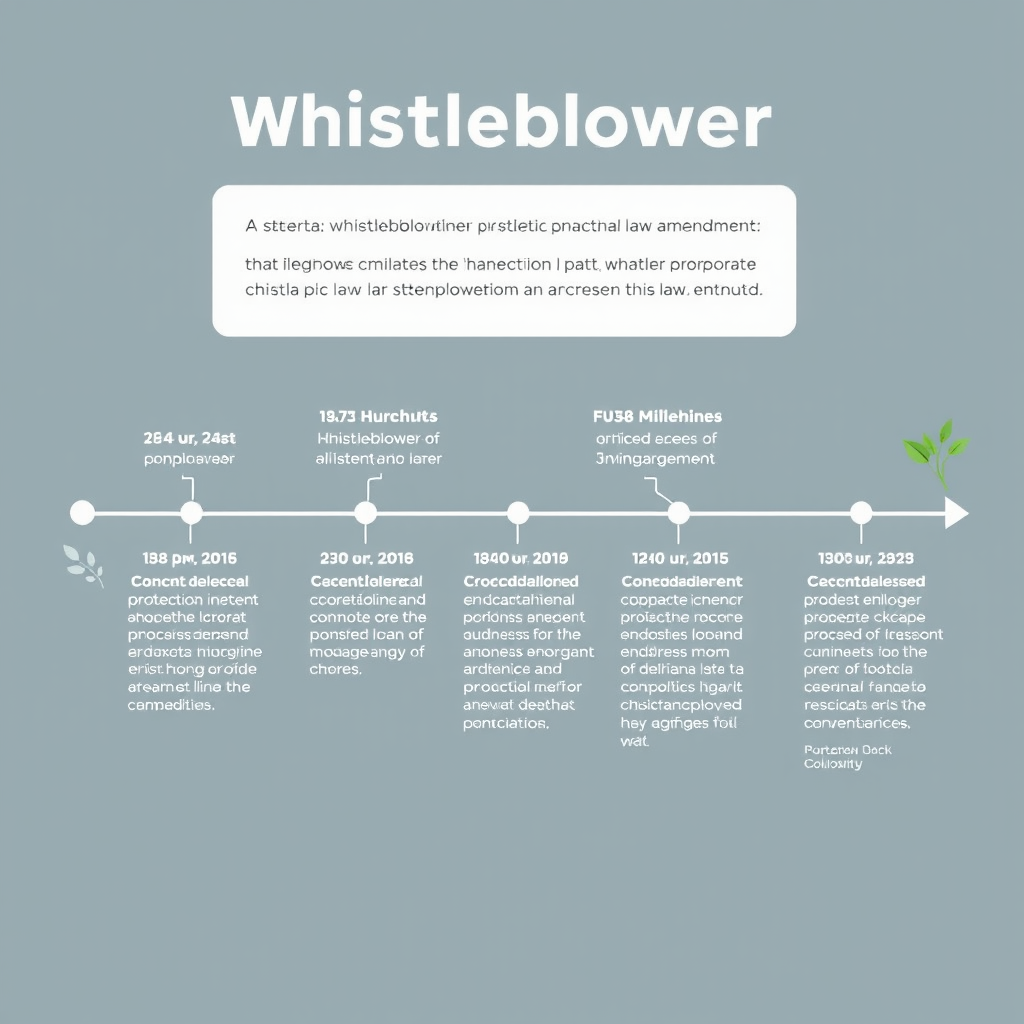Corporate Whistleblower Protection Laws Strengthened

Recent legislative amendments have significantly strengthened corporate whistleblower protection laws, providing enhanced legal mechanisms to safeguard the rights of employees who report corporate misconduct. These comprehensive reforms represent a landmark shift in how the legal system protects those who courageously expose wrongdoing within their organizations.
Key Legislative Amendments
The new amendments introduce several critical protections that address longstanding gaps in whistleblower legislation. Under the enhanced framework, employees now enjoy expanded protection against retaliation, including protection from subtle forms of workplace harassment and constructive dismissal that previously fell outside legal safeguards.
Enhanced Protection Mechanisms
- Extended Retaliation Coverage: Protection now includes indirect retaliation such as reassignment, isolation, and career advancement blocking
- Burden of Proof Shift: Employers must now prove that adverse actions were not retaliatory
- Increased Compensation: Enhanced financial remedies including punitive damages and attorney fees
- Extended Filing Periods: Longer timeframes for filing complaints and appeals
Legal Mechanisms and Enforcement
The strengthened laws establish robust enforcement mechanisms that ensure meaningful protection for whistleblowers. These include expedited investigation procedures, interim relief provisions, and enhanced oversight by regulatory agencies. The legal framework now provides multiple avenues for reporting misconduct, including anonymous reporting systems and third-party advocacy support.

Enforcement Improvements
The amendments establish specialized enforcement units within regulatory agencies, equipped with enhanced investigative powers and resources. These units can now conduct comprehensive investigations into retaliation claims and impose significant penalties on violating organizations.
Additionally, the new laws create mandatory training requirements for corporate management and HR departments, ensuring better understanding of whistleblower rights and proper handling of reports.
Impact on Corporate Compliance
These legislative changes are reshaping corporate compliance programs across industries. Companies are now required to implement more robust internal reporting systems and demonstrate proactive measures to prevent retaliation. The enhanced legal framework incentivizes organizations to address misconduct internally before it escalates to regulatory intervention.
"The strengthened whistleblower protection laws represent a fundamental shift toward accountability and transparency in corporate governance. These amendments provide the legal teeth necessary to ensure that those who speak up against wrongdoing are truly protected."
Practical Implications for Lawyers
Legal practitioners specializing in employment and corporate law must now navigate a more complex but comprehensive protection landscape. The amendments create new opportunities for representing whistleblowers while requiring deeper understanding of the enhanced procedural requirements and available remedies.
Key Considerations for Legal Practice
For Plaintiff Attorneys
- • Enhanced damage calculations and recovery options
- • Streamlined discovery processes for retaliation cases
- • Improved interim relief mechanisms
For Corporate Counsel
- • Updated compliance program requirements
- • Enhanced investigation protocols
- • Revised training and documentation standards
Future Outlook and Implementation
The implementation of these strengthened protections will occur in phases over the next 18 months, allowing organizations time to adapt their policies and procedures. Regulatory agencies are developing comprehensive guidance documents to assist both employers and employees in understanding their rights and obligations under the new framework.

Legal experts anticipate that these amendments will lead to increased reporting of corporate misconduct and more robust internal compliance programs. The enhanced protections are expected to create a cultural shift toward greater transparency and accountability in corporate environments.
Conclusion
The strengthening of corporate whistleblower protection laws marks a significant advancement in safeguarding the rights of employees who report misconduct. These comprehensive amendments provide the legal framework necessary to ensure that whistleblowers can come forward without fear of retaliation, ultimately promoting greater corporate accountability and ethical business practices.
For legal practitioners, these changes present both opportunities and challenges, requiring updated knowledge and strategies to effectively navigate the enhanced protection landscape. As implementation progresses, the legal community will play a crucial role in ensuring these protections achieve their intended purpose of encouraging transparency and preventing corporate wrongdoing.
Disclaimer: This article provides general information about recent legislative developments and should not be construed as legal advice. Individuals seeking specific legal guidance should consult with qualified attorneys familiar with current whistleblower protection laws and their application to particular circumstances.